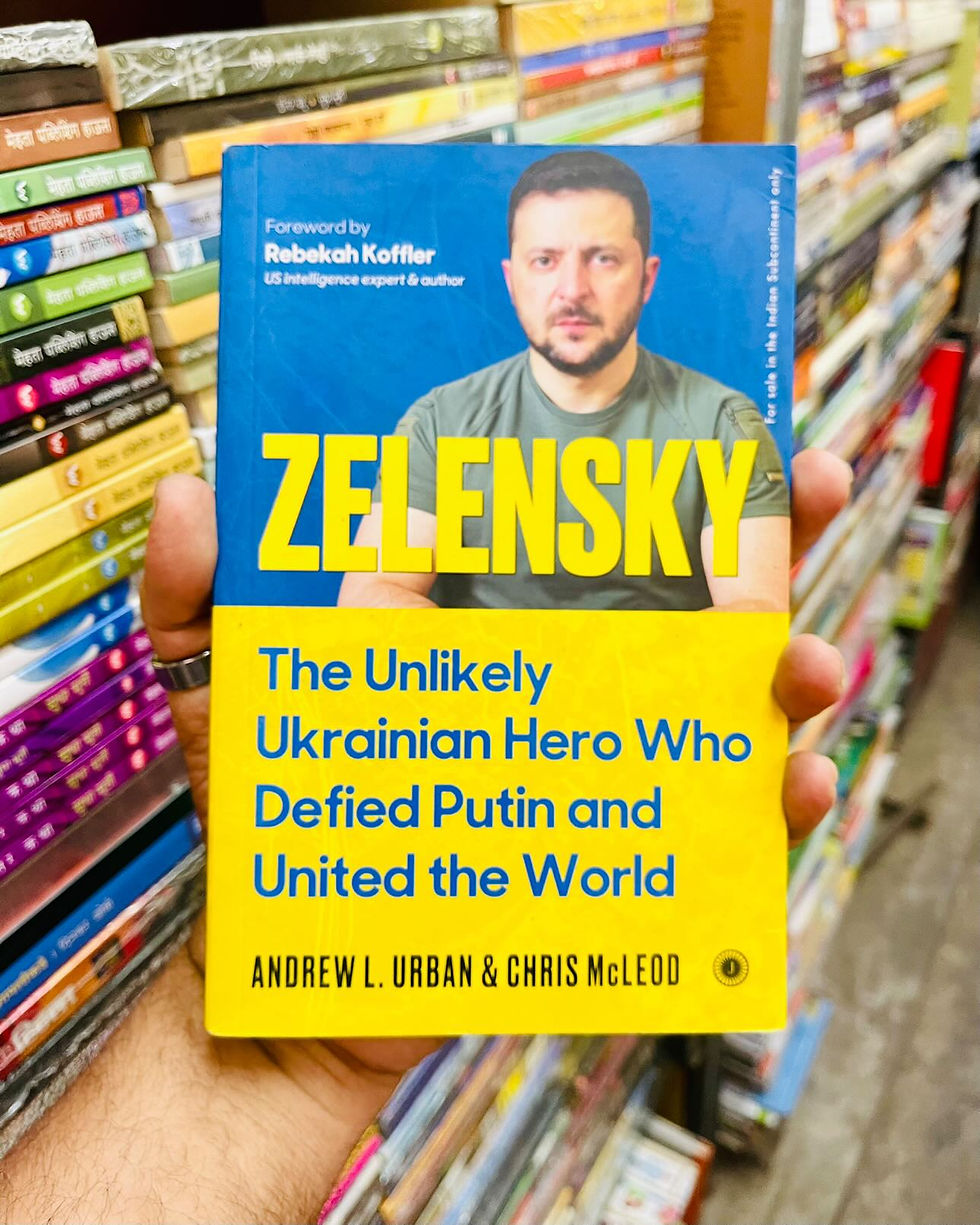BOOK REVIEW | ZELENSKY: THE UNLIKELY UKRAINIAN HERO WHO DEFIED PUTIN AND UNITED THE WORLD | ANDREW L. URBAN AND CHRIS MCLEOD
- Sameer Gudhate
- May 12, 2024
- 3 min read

Imagine a comedic actor stepping into the role of a lifetime, not on stage, but on the world political scene. That’s the surreal but true story of Volodymyr Zelensky, the focus of Andrew L. Urban and Chris McLeod’s biography. While the authors might not be household names, their attempt to chronicle the life of Ukraine’s president during a pivotal moment in history is both ambitious and timely.
"Zelensky" aims to provide a comprehensive look at the man who rose from television fame to become a symbol of resistance and leadership on the global stage. The book traces Zelensky's journey from his early days in showbiz to his unexpected ascendancy to the presidency, and his role in the ongoing conflict with Russia. It's a story of unexpected heroism, international politics, and a nation’s fight for sovereignty.
Urban and McLeod adopt a straightforward narrative style, prioritizing accessibility and flow over literary flourish. The prose is clear and functional, designed to communicate facts and events quickly and effectively. However, this approach sometimes lacks the emotional depth and detailed analysis that might bring Zelensky's story to life more vividly.
While intended as a biography of Zelensky, the book sometimes reads more like a general overview of recent Ukrainian history. Zelensky himself sometimes feels like a character in the background of larger geopolitical narratives. The authors do shine in moments where they delve into Zelensky's personal challenges and leadership style, offering glimpses of his resilience and strategic acumen.
The book is structured chronologically, which helps in building an understanding of the events leading up to and during the Ukraine-Russia conflict. However, the pacing is uneven, with some sections rushing through years of history while others linger on less critical details. This occasionally disrupts the narrative flow and may leave readers wishing for a more focused account of key moments.
The dominant themes are resilience, leadership under pressure, and the power of an underdog. These are reflected not only in Zelensky’s presidency but also in the broader struggle of Ukraine. The authors effectively highlight the international implications of Zelensky’s leadership, although the analysis sometimes feels surface-level.
The book strikes its strongest emotional chord when detailing the Ukrainian people's courage and Zelensky's role in galvanizing global support. However, moments that might have been deeply moving often feel glossed over due to the book's brisk narrative style.
The clear timeline and factual reporting are significant strengths, making complex geopolitical issues more accessible. When the authors focus directly on Zelensky’s actions and words during critical events, the narrative is compelling and engaging.
The book’s reliance on readily available news sources and a lack of in-depth personal insights into Zelensky diminish its impact. Errors and inconsistencies, such as those in names and dates, undermine its credibility and suggest a need for more rigorous editing.
As someone fascinated by leadership, I found the premise of Zelensky’s story compelling. However, I was hoping for more personal insights and a deeper exploration of his character. The book provides a good starting point for those unfamiliar with recent Ukrainian history but might not satisfy those seeking an in-depth character study.
"Zelensky" offers a useful if somewhat superficial overview of one of today’s most pivotal figures in international politics. It serves as a primer on Ukraine's recent history and Zelensky’s role within it, though it leaves room for a more detailed and nuanced portrait of the man at its heart. For those looking for an introduction to the topic, this book is a decent start, but it may not fully satisfy the more curious or discerning readers.




Comments